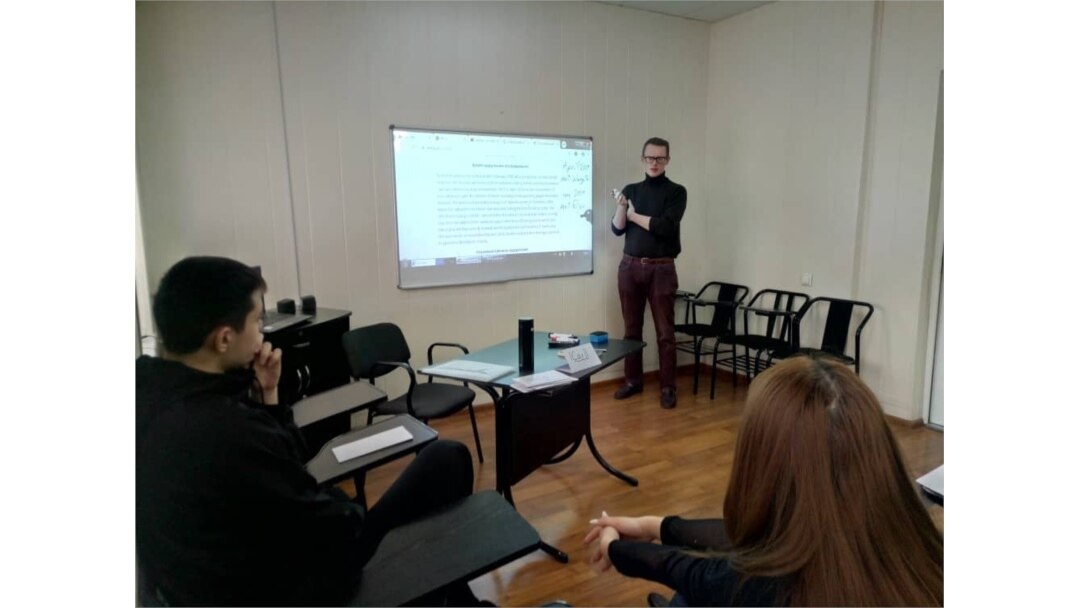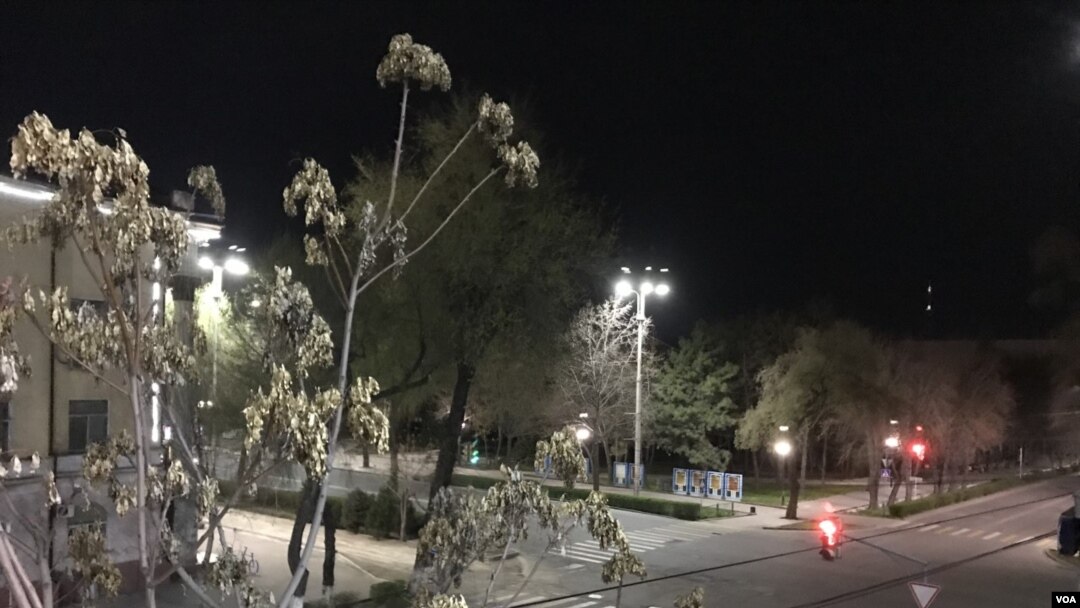An uncomfortable silence has settled on the normally busy boulevards and avenues of Bishkek, Kyrgyzstan.
Its high rises, trendy shops and other newcomers — ushered in by the sudden shift to market economics in the early 1990s — sit among slabs of gray concrete and rare czarist architecture that came before.
But, COVID-19 and the emergency state measures enacted by authorities to prevent any further spread of the disease have left these areas and other open spaces, like parks and cafés, absent of city residents. The vibe of springtime Bishkek is uncharacteristically different this year.
Local media and rumor keep apace of one another as the general public receives new information and learns of regulations that will shape everyone’s lives for the next several months. Parallel real-time developments in other countries leave those of us speculating as to how things will play out.
But for now, my time as a Fulbright scholar has come to an abrupt close. And I wait in isolation until COVID-19 is controlled.
Fulbright grant to teach
I came to Kyrgyzstan in August 2017 after finishing my bachelor’s degree at the University of Virginia, excited to begin a new life as a Peace Corps volunteer for two years. Toward the end of my service, I was offered a Fulbright grant to teach English classes at a private university in the capital of Bishkek. I started in October 2019.

Carl Liles teaches a class in Bishkek, Kyrgyzstan, before the coronavirus pandemic shut down the Fulbright program. (Courtesy photo)
On March 13, our WhatsApp group of Central Asian Fulbright English Teaching Assistants (ETAs) began to exchange a flurry of messages. The State Department was shuttering the Fulbright Program for the rest of the year.
What were the embassies saying? Who was staying? Who was leaving? Personal messages to friends and other loved ones went back and forth as we discussed our options and tried to come to grips with the potential futures we faced.
For most of us it was a difficult choice. We had committed to 10 months in our host countries and were adjusting to our new assignments. Routines were developed; social circles were formed. There were connections and revelations lying ahead for us as Fulbright ETAs.
For many, this abruptness was an unexpected intruder. News that we could leave without repercussion from the Fulbright program, followed by the order to evacuate, came with a flood of heavy emotions for all.
In the ensuing hours and days after we were told to leave Kyrgyzstan, it became obvious that a smooth return to the United States could be challenging. Rumors swirled about flight availability, cancellations and quarantines. Stories of being trapped in airports for more than a week came from WhatsApp and other social media platforms.
“In these unprecedented circumstances, we also recognize that due to conditions in specific countries, including the closing of borders and air space, the lack of available flights, or other safety considerations, not all U.S. Fulbright participants will be able to depart for the United States at this time,” the Fulbright program announced.
The risks of contracting COVID-19 in transit, and the sheer uncertainty of becoming a temporary resident in an airport terminal for an indefinite period, painted a somewhat bleak picture for returning stateside.
Thankfully, the State Department informed us that without safe and certain options for returning to the States, we could remain in our respective counties as private citizens — that is, if we were prepared to stay put for an undetermined time.
Waiting it out
Personally, I was immensely relieved that we were given the option to remain abroad. I believe I am in a better position to self-isolate and avoid COVID-19 — as well as not infect my loved ones with it — here in Kyrgyzstan than in the States.
Moreover, in my heart I felt that I wasn’t ready to go home. For me and other Fulbrights, returning to the States with no plans and few opportunities was unthinkable only three weeks ago. We had hoped to experience so much more while abroad, yet for reasons beyond our control, that opportunity vanished over the course of a few days.
Because of the internet, self-isolation in the coming months will be (hopefully) bearable. Communicating with friends and family across the globe, and consuming a near endless amount of media at the click of a mouse, make life a little less boring when social interaction is limited.
There are plenty of grocery stores and pharmacies near my apartment, which has a pleasant street view from all three of its rooms. Over time, these advantages may not prove to be as sustainable as I had hoped. But for the moment, I am thankful to have them.
The Fulbright ETA program is a truly exceptional way to teach and learn outside the U.S. We were each afforded the opportunity to live and integrate into cultures and countries that we otherwise would not have explored.
The Fulbright Program develops a more globally conscious population in the U.S. and abroad. We expanded our minds through cultural exchange, as well as those of our peers and counterparts in our host countries. For this, I and my fellow Fulbright 2019-2020 cohort will always be grateful.


